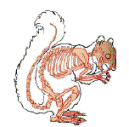
Renée Zellweger in Appaloosa (dir. Ed Harris, 2008).
When the only two bad things about a movie are the title font and the song that initiates the end credits, it's an occasion for celebration. Ed Harris has annoyed me at times in the past with his sincere, oaken maleness, but he knows how to make a western. He knows, for instance, the effectiveness of good banter, how it can account for up to 73% of the script. A good reference point here is Howard Hawks' triumphant Rio Bravo, which is really just John Wayne, Angie Dickinson, and Dean Martin trading small talk with a little jailhouse siege thrown in towards the end.
It's very satisfying watching Harris, Viggo Mortensen, and Renée Zellweger respond to each other's verbal and nonverbal cues with acute sensitivity and humor early in the film. It makes it even more satisfying when the easy conversation runs up against betrayal and disillusionment, and when those traumas are in turn met with pragmatic, stoic reason rather than stock bursts of violent passion (in the romantic plot, at any rate--there's plenty of frontier vengeance on the shoot-'em-up front).
It's an old-fashioned movie, but never blandly nostalgic. Zellweger's Allison French might be perceived as gendered in retrograde ways, but this depiction actually serves as an energizing constraint for both actor and script. Early on, Harris' Virgil Cole asks her if she's a whore. She takes it as an amusing affront, laughing in response, "Don't be crude." And it seems obvious to us as well that his question was inappropriate--until later events recolor our judgment. But then all is carried yet further to a delicate balance of grace and realism. Her "weakness" is what makes her interesting, not because she is able to transcend it, but because like most of us, she works around it, and finds others who are willing to do the same. Some viewers have complained that her character is underdeveloped; really, it is developed exactly to the right point. We are kept just far enough outside her interiority for it to take on a conjectural weight no concentrated performance could match.







